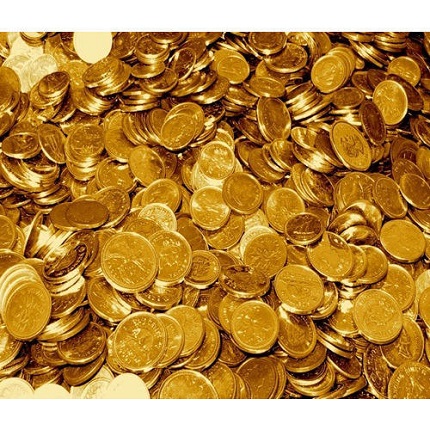While the World Gold Council (WGC) has set voluntary guidelines for all countries, they have instructed respective country Governements to form their own regulatory norms

The World Gold Council (WGC) has developed a set of guidelines for digital gold, which includes norms for both, investors and service providers in this space. The standards, which have been designed to protect investors and promote best practices, highlight the fact that there is a need to provide for investors’ safety when they buy gold on the internet, especially in a prominent market for the metal like India. With this guidelines, the council has also nudged the government to issue regulatory norms for buying and selling digital gold in the country.
Physical gold bought online and stored on behalf of the buyer is known as digital gold or Internet Investment Gold (IIG). The WGC guidance is voluntary and common for all countries. However, the report said that respective governments should prepare regulations for IIG or digital gold which are binding. WGC has not offered insights into who can offer digital gold and the provider’s net worth criteria. According to its IIG guidelines, “There are estimated to be more than 200 providers of IIG or similar products globally. The largest providers hold billions of US dollars in precious metals on behalf of investors. Product providers are spread across numerous countries, ranging from Europe and North America to Asia and the Middle East.”
In India, three platforms have emerged in just two years’ time, claiming to have opened some 80 million accounts, which is twice the total demat accounts in the securities market. Market players say there are a lot of dormant accounts opened by providers to credit cashback in the form of gold or duplication of accounts across platforms, but the trend of buying gold digitally is fast becoming popular, albeit at very small ticket sizes. The issue assumed significance after fears were raised about the safety of money invested in gold bought on the internet, as service providers are hardly regulated.
Investors are not taking deliveries immediately and at times, sell digital gold holdings without taking delivery to “encash” the incentive provided in the form of gold on other transactions. WGC's IIG guidelines provide potential investors with relevant support to help them take informed decisions on investing in digital gold. And product providers’ guidelines provide sound practices that should be follow to ensure safety of investments. WGC guidelines suggest that when investors buy gold digitally, the provider must simultaneously buy from trusted sources and store an equivalent quantity of physical gold with independent custodian and allocate outright ownership to gold so stored. The provider should have done proper KYC of investors to meet anti-money laundering guidelines, taken insurance cover, and periodically audited and inspected the gold stored. Finally the provide must disclose all the relevant information like storage, insurance, fees and charges etc transparently to the investors.
From India’s perspective, Somasundaram P R, Managing Director, India, World Gold Council says, “Digital gold buying in India is catching up fast among micro savers and millennials on account of ease of transacting. It is set to grow phenomenally as the pace of digitisation of the economy increases. There is an urgent need for India-specific guidelines for providers to promote orderly growth of this segment and avoid any fly-by-night operators who could ride this boom and bring chaos and disrepute to the industry. These guidelines should enable customer protection through transparency – purity, price, independent custody of customers’ gold, is it insolvency proof from the provider, taxation aspects on buying and selling, etc. For example, when an investor buys gold digitally, he has to pay Gold but when he sells it, can there a mechanism to refund or give credit for the GST paid at the time of purchase.
” Providers also agree for regulations. One of the organised players, SafeGold’s MD, Gaurav Mathur said, “We are looking forward to a regulatory framework for digital gold. If the digital gold ecosystem can access the gold monetisation scheme, imports can be reduced materially.” A collateral benefit of promoting the growth of digital gold will be improved awareness and lower barriers to holding deposits under the gold monetisation scheme. Further, jewellery buying using accumulated digital gold will lead to a healthy interface with jewellery trade for millions of micro savers in gold.
Be the first to comment